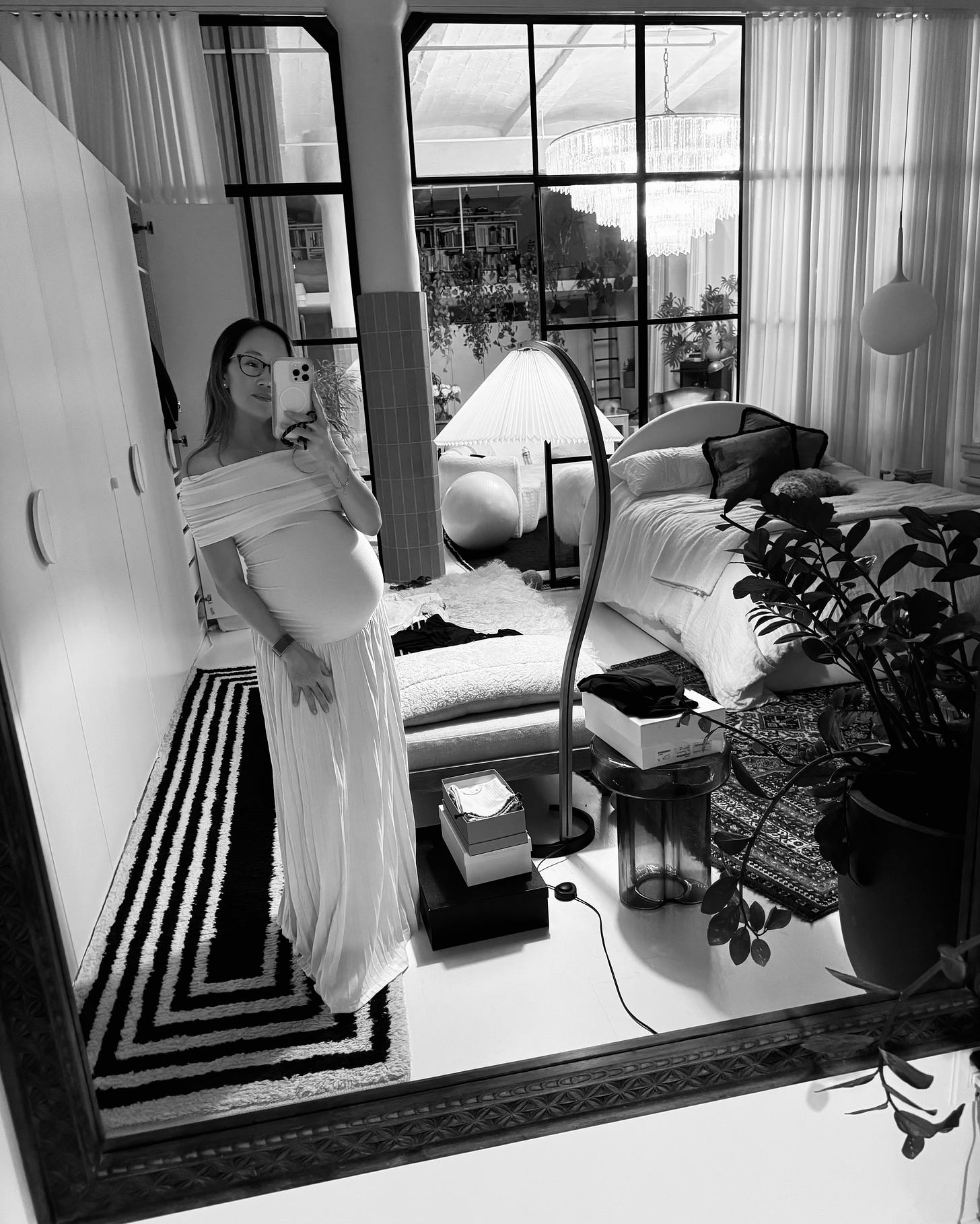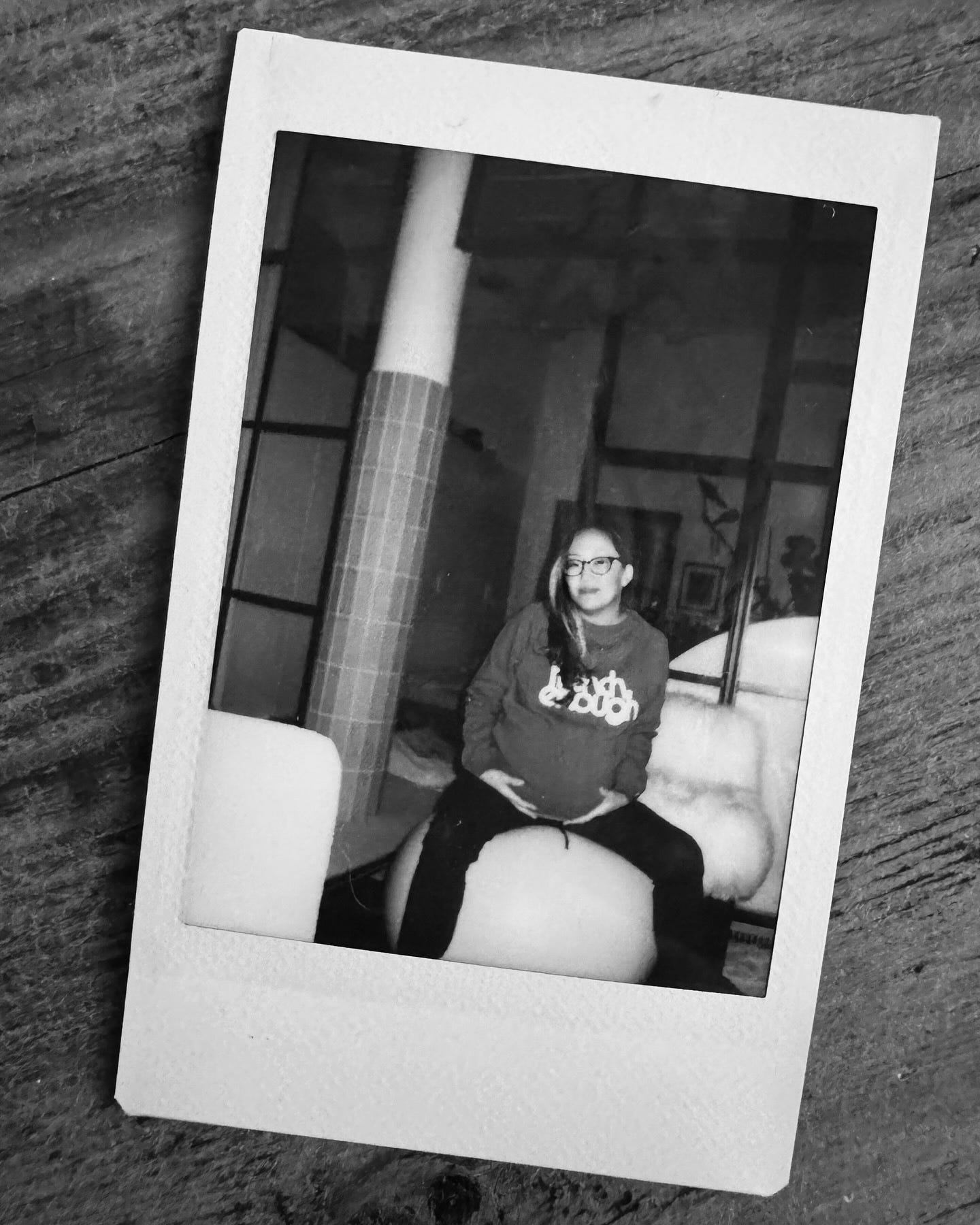Last weekend, I sat down at my desk to read through a stack of expert witness reports with the goal of distilling their main points into the detailed summary judgment outline I’d been working on for weeks. The first report, by an eminent Harvard economist, is on the relevant economic factors that must be considered when evaluating business decisions around resource allocation for pharmaceutical development. It was well argued, well written, and satisfying to read. After that, I read a report on the chemistry, manufacturing, and controls section of a biologics license application, which was comparably well argued, fact intensive, and meticulous. The amount of specialized knowledge that goes into developing novel drug products is astounding, and the amount of time I’ve spent on the topic this year has not been insubstantial. I mention this today, on my due date, as a marker for where my head has been for the past nine months. The world of biologics and high stakes litigation can be all consuming.
That I am officially 40 weeks pregnant today is a fact I can hardly believe. Pregnancy has been a slightly altered mode of existence for me, but one that has not, until very recently, been so different from the norm. I’ve had no morning sickness, no significant aches and pains, no overwhelming tiredness, no untoward symptoms like high blood pressure or heartburn or strange cravings or rapid weight gain. I’ve allowed myself one coffee a day and dispensed with the scotch and the deli meats and the sushi. I work out less strenuously and drink more water. Getting dressed has been a little monotonous – I’ve never worn so many unremarkable stretchy things – and in the third trimester I’ve been a little self-conscious of the watermelon-sized bump that seems to be overtaking my body, which has otherwise remained rather stick-like. But all in all, there has not been much to complain about. I expected it to be different.
I was browsing the new & noteworthy nonfiction in the Rockefeller Center McNally Jackson sometime last summer, about to enter my second trimester, when I came across an excerpt from Lucy Jones’s book Matrescence. It was then that I first began to wonder if I was disconnected from my pregnancy and the changes that must be happening in my body.
Jones writes: “I could smell everything. The armpits and groins of those who passed by on a wide road. Specks of food on a train seat … The breakfast breath of a shop assistant. Chip fat across the highway. Postmix syrup and pub carpet seeping into the street … I was a dog now. Sniffing for danger.”
She continues: “A parallel, more disquieting change seemed to be happening in my mind. I was overjoyed to be pregnant, attached to the growing creature within, but I found myself becoming subdued, more introverted, increasingly disrupted as the weeks passed. I had no language with which to understand or describe this change, but my consciousness felt different: restructured or rewired.”
I bought the book and then stashed it away. I hadn’t experienced the things she wrote about, but maybe I would with time, and even if I didn’t, perhaps reading about her experience would be instructive. Three months later and I’ve only read the first sentence: “When a human animal grew inside my body, I started to realize that some hoodwinking had been going on. When she left my body, I noticed more.”
I suspect that throughout my pregnancy I have subconsciously feared “falling prey” to it, and that I have countered that fear — essentially a fear of disruption of the norm — by keeping things orderly and productive, by focusing on the litigation and the biologics. In other words, by maintaining control in all the ways I know how.
My body has cooperated with that plan, mercifully, and my preparations for the upcoming birth of my first child have been routine, cautious, consumerist. I have checklists for vaccines, procedures, ultrasounds, and medical questions, and shopping lists for baby gear, breastfeeding contraptions, postpartum tools, and a whole host of other “necessities.” I have a birth plan, so-called, and have read the oft-cited studies on induction, cesarean section, epidurals, and various possible birth complications.
My trainer has helped me with general strength and fitness throughout the pregnancy, and I have a wonderful network of doulas who have introduced me to important concepts like hypnobirthing and alternative ways of thinking about pregnancy, childbirth, and motherhood as a whole. Everything appears to be in order, and I feel good about the preparations I have made. But in these final weeks I have started to think, once again, about what emotional and spiritual aspects of pregnancy I may have been blocking out or disassociating from that perhaps I should be connecting with. This divide is undoubtedly a manifestation of an old tension resurfacing, one between openness to change and wonder, and an urge turned habit to control and order.
I remember the first time I felt the baby kick. I pointed to my belly and said something to my partner, Ilia, like: “Can you believe there is another human in here?” It sounded cliché, but I meant it. Pregnancy certainly presents a confounding mix of the miraculous and mundane. I have been walking around with two hearts, two brains, two sets of eyes. And yet there is nothing particularly unusual about this – about 150 million other women are currently achieving the same feat.
In The Argonauts, another book I have been avoiding, Maggie Nelson wonders: “How can an experience so profoundly strange and wild and transformative also symbolize or enact the ultimate conformity?” This is a question I have been grappling with, too. How do I square being a mother, one of my lifelong desires, with the seemingly opposing desire to live outside the strictures of conventional frameworks? For years I have put off motherhood to advance competing interests, which have taken me as far afield as Afghanistan. Now that I am nearing the end of my “geriatric pregnancy” (pregnancy in women over 35), I am coming to terms with a tradeoff in the other direction with some trepidation, but excitement too.
About a week ago, I was sitting at my desk on a client call when I heard what sounded like a seagull cry coming from the depths of my right inner ear. It was so haunting and realistic that my mind flashed to a rainy day visit to the Normandy beaches over 12 years ago. It happened again a few days later, and then there was a flock of seagulls once or twice a day whose cries ranged from peaceful to deranged. “I heard the dying seagulls again,” I would tell Ilia.
My OB assured me that hormonal changes, increased blood volume, and swelling in the tissues surrounding the cochlea make tinnitus in pregnancy unfortunately common, and that it should go away after delivery. It’s week 40 and the seagulls are mostly gone, but they have been replaced with a constant pulsating in that same right ear, as if my body desperately wants me to acknowledge and internalize the steady beat of my baby’s heart. That aural insistence, along with the increasing downward pressure on my pelvis, are clear reminders, at last, that change is afoot.
I’m ready to read the books now, and to open myself up to the immensity on the other side of all this waiting. I’m sure I will be overwhelmed by the mundane, perhaps even overcome by the sublime. I really hope I can learn to let go, to open myself up, so that I can receive the wisdom inherent in thinking and feeling like a mother.
This is the first personal writing I have done in almost a year! Excited to be back and hope I can keep it up in 2025. I may add in a few new features, like lists of things I’ve bought and liked or shorter notes on discrete topics I’ve been thinking about (which may or may not revolve around motherhood). As always, open to suggestions!






